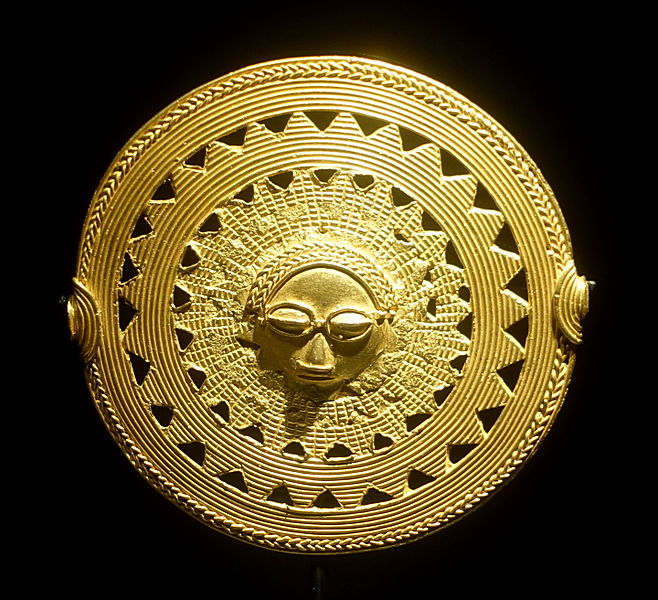
In a historic move, the UK has finalized a loan agreement to repatriate Asante Gold, looted from Ghana over a century ago. The British Museum and the Victoria & Albert Museum (V&A) have
each entered into a three-year loan deal, returning 15 and 17 pieces of Asante Gold, respectively.
These loan arrangements serve as a means to facilitate the return of cultural artifacts to their countries of origin. The Ghanaian loan deal, extendable by an additional three years, was negotiated with Otumfo Osei Tutu II, the Asante king also known as the Asantehene. While some national museums in the UK, including the V&A and the British Museum, face restrictions on permanently returning such items, these loans mark a significant step toward acknowledging historical injustices.
The repatriated gold pieces will be exhibited at the Manhyia Palace Museum in Kumasi, the capital of the Asante region, as part of the celebrations for the Asantehene's silver jubilee.
Tristram Hunt, the director of the V&A, likened the significance of these gold items to "our Crown Jewels" and emphasized the responsibility of museums to address objects acquired through war and looting. He stated, "When museums hold objects with origins in war and looting in military campaigns, we have a responsibility to the countries of origin to think about how we can share those more fairly today."
The Asantehene, who met King Charles at his Coronation last year, played a pivotal role in facilitating this agreement. The hope is that this historic deal will set a precedent for handling other repatriation disputes, potentially impacting ongoing discussions, including the contentious issue of the Elgin Marbles.
Ghana's chief operation expressed optimism that the agreement would foster "a new sense of cultural cooperation" after years of discontent. However, there are concerns that accepting these items on loan may be interpreted as an implicit acknowledgment of the UK's ownership of the contested artifacts.
Most of the artifacts in question were taken during 19th-century conflicts between the British and the Asante. Notable items to be returned include a ceremonial cap worn by courtiers at coronations, a sword of state, and gold badges worn by officials tasked with purifying the soul of the king.
In a broader context, discussions are ongoing regarding other contested artifacts held by British museums, such as the Elgin Marbles. A source from the British Museum indicated that they are exploring arrangements that could potentially allow some Parthenon sculptures to travel to Greece.
The hope is that agreements like these will contribute to resolving issues raised by former colonial nations seeking the return of their cultural treasures. Photo by Daderot, Wikimedia commons.









































